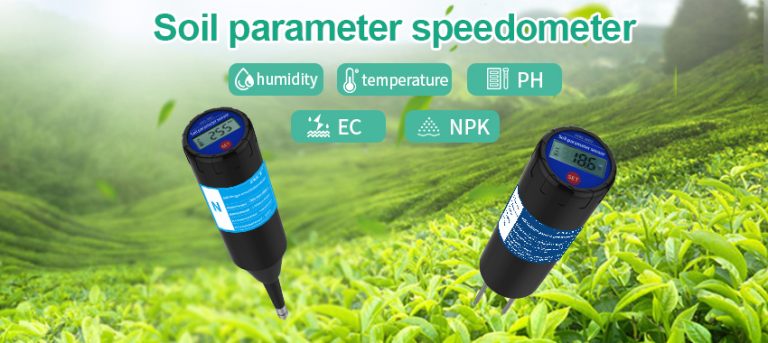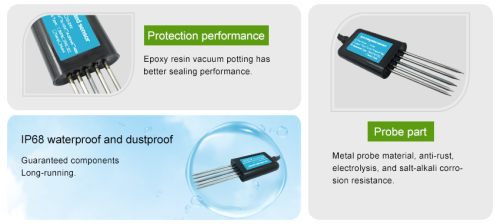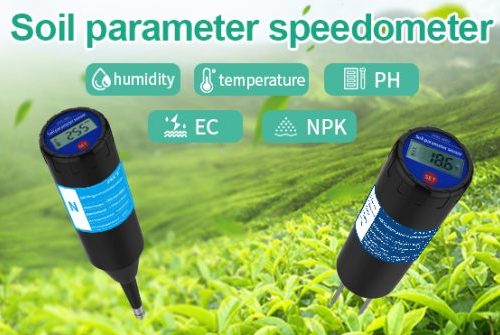The soil humidity sensor is a revolutionary device that has transformed the way we monitor and manage soil moisture levels in agricultural practices. This sensor plays a vital role in ensuring optimal crop growth and maximizing water efficiency. In this article, we will explore the significance of soil humidity sensors in agriculture, their benefits, and how they are shaping the future of farming.

Accurate Monitoring of Soil Moisture
The soil humidity sensor enables farmers to accurately monitor the moisture content in the soil. It measures the volumetric water content, providing real-time data on the amount of water available to the plants. This information allows farmers to make informed decisions regarding irrigation, ensuring that crops receive the right amount of water at the appropriate time. By avoiding over or under-watering, farmers can prevent water waste and optimize crop yield.
Improved Water Management

Efficient water management is crucial for sustainable agriculture. Soil humidity sensors enable farmers to implement precise irrigation strategies based on actual soil moisture conditions. With the help of these sensors, irrigation systems can be automated, activating only when the soil moisture levels drop below a certain threshold. As a result, water is used more efficiently, reducing water consumption and lowering irrigation costs.
Enhanced Crop Yield and Quality
Maintaining an optimal soil moisture level is essential for promoting healthy plant growth and maximizing crop yield. Soil humidity sensors provide farmers with insights into the moisture requirements of different crops, allowing them to adjust irrigation schedules accordingly. By ensuring that plants receive adequate moisture, farmers can promote root development, nutrient uptake, and overall plant health. This leads to higher crop yields and improved quality, ultimately benefiting both farmers and consumers.
Prevention of Soil Degradation
Over-irrigation or improper water management can lead to soil degradation, such as waterlogging or salinity, which negatively impacts crop productivity. Soil humidity sensors are instrumental in preventing such issues by providing accurate data on soil moisture levels. Farmers can avoid excessive irrigation, which can leach nutrients and salts from the soil, leading to poor plant growth. By maintaining optimal soil moisture levels, soil structure and fertility are preserved, contributing to long-term sustainability.
Cost Savings and Environmental Benefits
The utilization of soil humidity sensors brings significant cost savings for farmers. By optimizing water usage, farmers can reduce expenses related to excessive irrigation, such as energy, labor, and water costs. Moreover, these sensors contribute to environmental protection by conserving water resources. The efficient use of water in agriculture helps alleviate pressure on freshwater sources and promotes sustainable farming practices.
Conclusion
The advent of soil humidity sensors has revolutionized agricultural practices, empowering farmers with real-time data to make informed decisions about irrigation management. With accurate monitoring of soil moisture, farmers can optimize water usage, promote crop growth, prevent soil degradation, and enhance overall productivity. These sensors not only bring cost savings but also contribute to environmental sustainability by conserving water resources. As we move towards a future where sustainable farming practices are paramount, the soil humidity sensor will continue to play a crucial role in maximizing agricultural efficiency and ensuring food security for generations to come.
